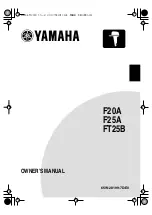
Chapter 3: Troubleshooting
55
4.
Identifying bad components by isolating them: If necessary, remove a component in
question from the chassis, and test it in isolation to make sure that it works properly.
Replace a bad component with a good one.
5. Check and change one component at a time instead of changing several items at the
same time. This will help isolate and identify the problem.
6. To find out if a component is good, swap this component with a new one to see if the
system will work properly. If so, then the old component is bad. You can also install the
component in question in another system. If the new system works, the component is
good and the old system has problems.
3.2 Technical Support Procedures
Before contacting Technical Support, please take the following steps. Also, note that as a
motherboard manufacturer, we do not sell directly to end-users, so it is best to first check with
your distributor or reseller for troubleshooting services. They should know of any possible
problem(s) with the specific system configuration that was sold to you.
1.
Please review the ‘Troubleshooting Procedures’ and 'Frequently Asked Questions'
(FAQs) sections in this chapter or see the FAQs on our website before contacting
Technical Support.
2. BIOS upgrades can be downloaded from our website.
Note:
Not all BIOS can be
flashed depending on the modifications to the boot block code.
3.
If you still cannot resolve the problem, include the following information when contacting
us for technical support:
•
Motherboard model and PCB revision number
•
BIOS release date/version (this can be seen on the initial display when your system first
boots up)
•
System configuration
An example of a Technical Support form is posted on our website.
Distributors: For immediate assistance, please have your account number ready when
contacting our technical support department by e-mail.















































